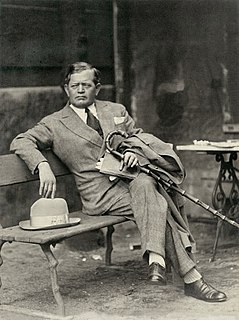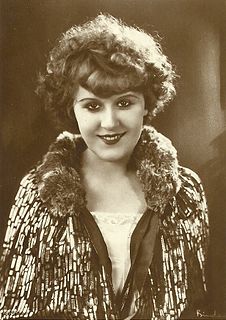Lützow's Wild Hunt may mean:
- Lützow's Wild Hunt (film), a 1927 German silent film directed by Richard Oswald
- Lützow's Wild Hunt (poem), by German poet and soldier Theodor Körner
Lützow's Wild Hunt may mean:

Ludwig Adolf Wilhelm Freiherr von Lützow was a Prussian general notable for his organization and command of the Lützow Freikorps of volunteers during the Napoleonic Wars.
Several ships can be described as the German cruiser Lützow:

Lützow Free Corps was a volunteer force of the Prussian army during the Napoleonic Wars. It was named after its commander, Ludwig Adolf Wilhelm von Lützow. The Corpsmen were also widely known as the “Lützower Jäger“ or “Schwarze Jäger“, sometimes also "Lützower Reiter".

Carl Theodor Körner was a German poet and soldier. After some time in Vienna, where he wrote some light comedies and other works for the Burgtheater, he became a soldier and joined the Lützow Free Corps in the German uprising against Napoleon. During these times, he displayed personal courage in many fights, and encouraged his comrades by fiery patriotic lyrics he composed, among these being the "Schwertlied", composed during a lull in fighting only a few hours before his death, and "Lützows wilde Jagd", each set to music by both Carl Maria von Weber and Franz Schubert. He was often called the "German Tyrtaeus."

Richard Oswald was an Austrian director, producer, and screenwriter.

Wera Engels was a German actress. After successful leading roles in productions of the well-established German UFA-studios in Babelsberg as well as in France, she was invited to Hollywood. Producers saw her as a cheap alternative to Greta Garbo and Marlene Dietrich.
Arthur Wellin was a German film director, actor, screenwriter and producer. He directed 18 films between 1916 and 1927. He also appeared in 11 films between 1915 and 1933. He was born in Berlin, Germany.

Sig Arno was a German-Jewish film actor who appeared in such films as Pardon My Sarong and The Mummy's Hand. He may be best remembered from The Palm Beach Story (1942) as Toto, the nonsense-talking, mustachioed man who hopelessly pursues Mary Astor's Princess Centimillia.

Paul Hermann Bildt was a German film actor. He appeared in more than 180 films between 1910 and 1956. He was born and died in Berlin, Germany.

Albert Steinrück was a German stage and film actor of the silent era. He appeared in 88 films between 1910 and 1929. He starred in the 1923 film The Treasure, which was directed by Georg Wilhelm Pabst. He was also a leading role in the German expressionist 1920 film The Golem, in which he plays a rabbi.

Friedrich Kühne, born Franz Michna, was a German film actor of the silent era. He appeared in 104 films between 1913 and 1957.

Leopold von Ledebur was a German stage and film actor.

Gerd Briese was a German stage and film actor.

Mary Kid was a German actress. She appeared in more than forty films during the Weimar Republic, but her career came to an end in the early sound era.
Prussian films were a cycle of historical films made in Germany during the Weimar (1918–1933) and Nazi (1933–1945) eras noted for their general glorification of Prussian history and its military. The films are set during the eighteenth and nineteenth centuries. They particularly focused on Frederick the Great, who ruled Prussia from 1740 to 1786 greatly expanding its territory. The films were extremely popular with German audiences and an estimated forty four were produced by the end of the Second World War.
Lützow's Wild Hunt is a 1927 German silent war film directed by Richard Oswald and starring Ernst Rückert, Arthur Wellin and Mary Kid. The film's art direction was by Ernst Stern. It is part of the cycle of Prussian films and portrays the fight of Prussian troops under the command of Ludwig Adolf Wilhelm von Lützow against the French during the Napoleonic Wars, commemorated in the poetry of Theodor Körner.

Eugen Jensen (1871–1957) was an Austrian stage and film actor. He worked frequently in the Austrian and German cinemas during the silent era in supporting roles in films such as The Love of Jeanne Ney (1927). Following the Anchluss of 1938, Jensen emigrated to Switzerland. He was married to the actresses Alice Lach and Rosa Montani.
Ewald Daub was a German cinematographer who shot more than a hundred films during his career. Daub entered the film industry during the silent era, with one of his first films being the biopic Martin Luther (1923). Over the next two decades he was to work on a number of Harry Piel thrillers and Heinz Rühmann comedies. He died in 1946 following an operation.
Hugo Döblin was a German stage and film actor. He appeared in more than eighty films, most of them during the silent era. The Jewish Döblin left Germany following the Nazi Party's rise to power in 1933, and after moving first to Czechoslovakia and Austria, eventually settled in Switzerland. His younger brother was novelist, essayist, and doctor Alfred Döblin (1878–1957).
Lützow's Wild Hunt is a patriotic German song.